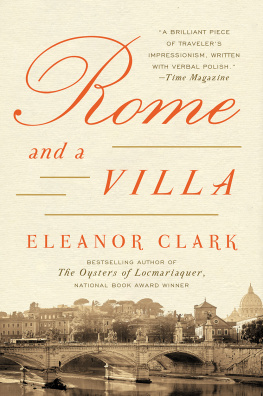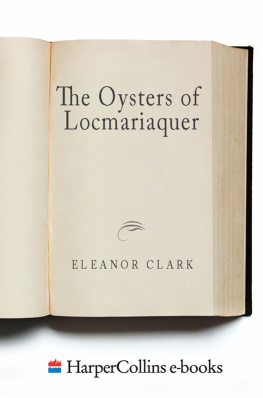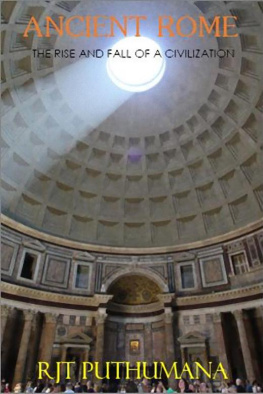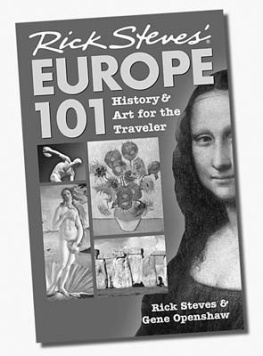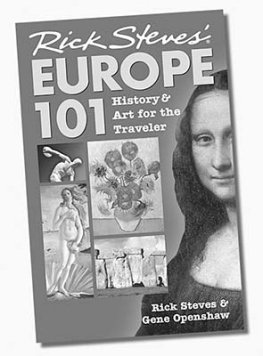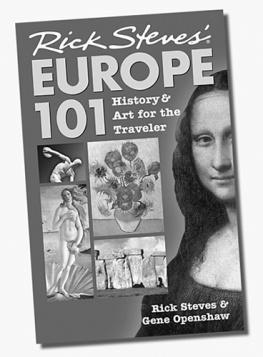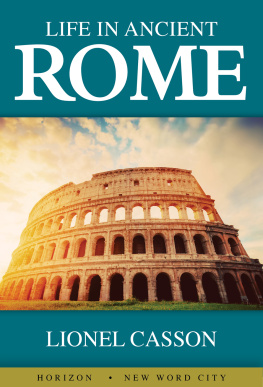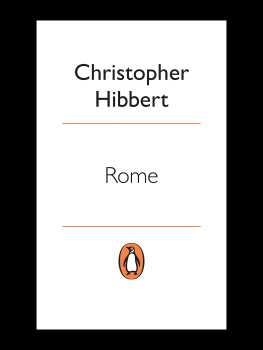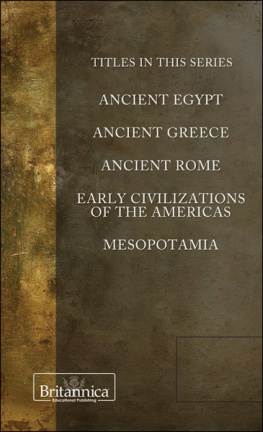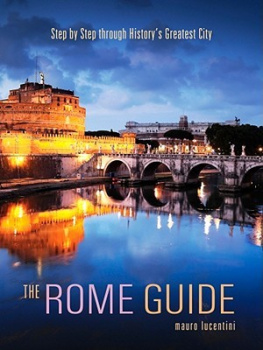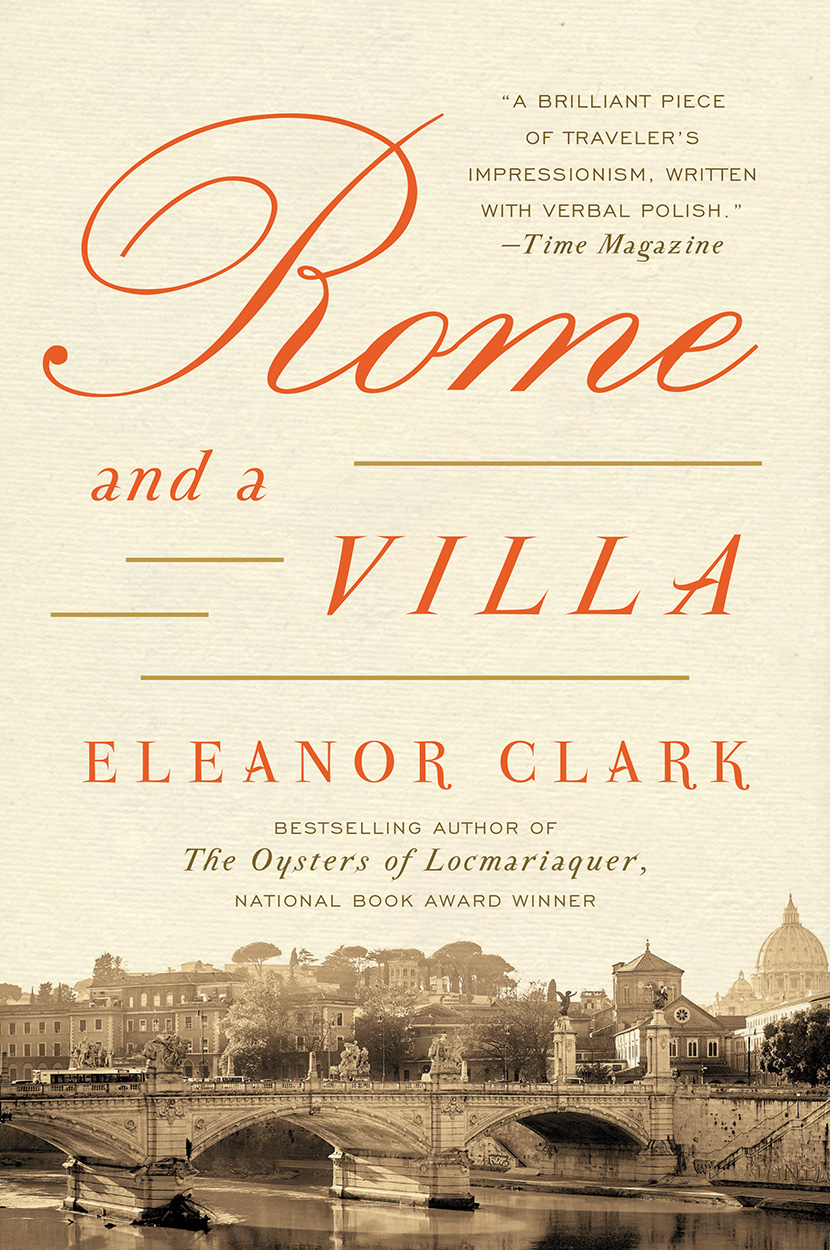The first thing about the Campidoglio, aside from what it is, is the stairs.
Long flights of stairs are always beautiful, and here there are two, side by side, diverging by an odd little angle and with a narrow third one, covered by an arbor and absurdly steep, going up between them with an air of being useful and significant, as if there were no other way of getting up the hill. It is the air of almost everything in Rome. The left-hand stairs have a hundred and twenty-four steps and are not quite in line with the faade at the top, the bare brown one, stuck on like a middle-western store front, of the church of Santa Maria in Aracoeli. This is the highest point, the arx, where Juno sat, facing the other way however, and the stairs have a good holy look of an impossible proposition, though in fact there is an easy way into the church in back. The others, more lenient and not spiritual at all, bring you to the Campidoglio.
It is the center, the starting pointa very real center in various ways, and you can get your bearings from there, as you would climb the tallest tree to look over a thick dangerous landscape. Michelangelo made what is there now, the architecture that is; the Forum, that lovely lake of time, lies over in back; the Corso, another sort of business altogether, strikes away from the citys great white latter-day vanity, the Victor Emmanuel Monument, which you are in the lee of. It all, speaking of time too, arranges itself most tidily from here.
Not that there is any good approach or possible start at all, really, in this wide jungle, though it seems it was not always so strange and difficult as now.
People used to come jogging down from the north by the post, firm in their travel aches and classical education, and at a certain turn the horses pulled up and the postilion cried Ecco Roma! and everyone tumbled out to see. They were following Hannibals route more or less, and there at last it would be, oh, at last!the Dome anyway and a few other long-known shapes over the terrifying teacup panorama. Happy people, having the whole depth and wonder of a destination borne in on them so for a moment.
Or the ones of long before, say in the 6th Century, when the place was supposed to be a shambles and certainly its memory and half its population were gone, and even so they fell down and adored it, perhaps even literally, not having known among other things that a city could be so beautiful. Or the other kind, later, reformers, flagellants, big angry Luther running away like mad, trying to shake the evil dust from their feet and the laughter and murder and riches from their more delicate minds: wicked, wicked Rome, how it had betrayed them; but the dust would never be shaken till they died.
Or consider Dickens, Dr. Arnold, the English ladies Augustus Hare tells you about bargaining for lace at a certain corner of the ghetto; dark Hawthorne breathing in crime along the dark palace walls; and the English, French, German, American painters all trooping out boyishly in carriages for their annual picnic and mock pageant across the campagna. How knowing it all was, the thrill, the attachment, the indignation, the Protestant malaise. Here Caesar fell, they said to themselves, holding his toga close for modesty; here splashed the blood of the martyrs, and the captive kings walked beneath the yoke; here or there the sunset is most peculiarly Romanthey knew what they were talking about; and Stendhal could be content for days to keep coming on still another canvas by le divin Guercin. It is delightful to think of them all.
Now the tourist or student or wandering intellectual, the poor seeker after something or other, comes in like a wisp of fog in a fog bank, with his angst and his foggy modern eye, and there are not many words that can help him even a little to find his identity and his way: history, surrealism, faith. The angst is going to get a lot worse; the eye, if he stays long enough, will be pried open week by week as if every lash had been glued down; and meanwhile there are the mess and the blazing sun, the incongruities, the too-muchness of everything. The historian Taine said that really to profit from Rome you would have to be always in a gay mood, or at least a healthy one; he would not have thought of using the words nowadays.
Ecco Roma indeed... But still, in a way, there it is. Something, after all, is being presented to the glazed eyeball and paralyzed sense of the worrying traveler, who came most often not looking for Rome at all but for love; whose distress about national responsibilities is painfully mixed up with anxiety over his baggage.
He sees a city of bells and hills and walls (walls for defense, Servian, Aurelian and Vatican, it was not often an Open City; and heavy bars across the lower windows of the house walls, against all manner of crime); of many trees nordic and tropical together, pine, ilex and palm, and water and a disturbing depth of shadows; of acres of ruins, some handsome, some shabby lumps and dumps of useless masonry, sprinkled through acres of howling modernityan impossible compounding of time, in which no century has respect for any other and all hit you in a jumble at every turn; of roaring motors and other dreadful noises, where some roaring festa with fireworks is always going on; whose churches are junk shops of idolatrous bric-a-brac; which calls on your awe and is absolutely lacking in any itself; where spaces open out or close up before you suddenly as in dreams, and a tormenting dreamlike sexual gaiety seems to rise you cannot tell how from the streets; a place of no grandeur whatever of any kind you expected, ravaged by fascist vulgarities; in which the presidents, until 1945 the royal, palace looks from the outside like an old tobacco barn, and everything you came to revere turns up in a setting as of some huge practical joke; a place beautiful at certain points, at certain moments, but closed to you, repellent, where you are always being reminded of something, you cannot tell what, but it is like the fear of falling down a deep well.
It is too much. It is a place, beneath all its obvious racket, of whispers and secrets, so various and insidious that to be open to them can be the beginning of madness, and in fact it does induce several kinds of aberration in foreigners. One you can detect behind those chilling phrases Its not in my field, Its not in my period, which are heard here more than in any other city. In every academy and rooming house there are one or two of these tragic wrecks, alcoholics of the single object: the numismatist, the fontomaniac, the expert on neo-classic doorknobs, the Mithraphile, the lifelong annotator of a medieval manuscript, or of the single Roman painting by an obscure English Romantic, the man who tried to know the name of everything in the Forum; they are drawn, fatally, from all over the world, or turned into this after they came, and many would rather die than be dislodged. But they are no worse off than most of the foreign visitors these days.
They swirl in herds through the Vatican Museums, around the Colosseumyou would not think, as Dante said, that there could be so many; or sit in bars for two weeks getting the feel of the place; or drag about in a dim melancholy of expectation and loneliness, often complicated by Roman stomach trouble; or take up with the variety of little sad fifth-rate adventurers always available along the Via Veneto, especially for homosexuals, because the city has become as much a world magnet in that respect as for Catholic converts or illuminated manuscript worms.
There are painters again now too, lots of them, mostly Americans, and writers. For a whole generation, practically speaking from 1914 to 1945, Rome ceased to exist for them; some foreign scholars could stand the fascist dictatorship, or profit from it, but for artists it was not inviting, nor a good idea; there was the case of Ezra Pound, one of the most interesting examples of mental risk in our century. Then suddenly the gates were open again and they came flocking back in with love and gratitude and pent-up need of this above all cities, and it was all brand-new, as if it had never been heard of before, but it is not like a hundred years ago nor even like the beginning of this century. There is no international picnic, and not much painting or writing either, at least for the first two or three years.

